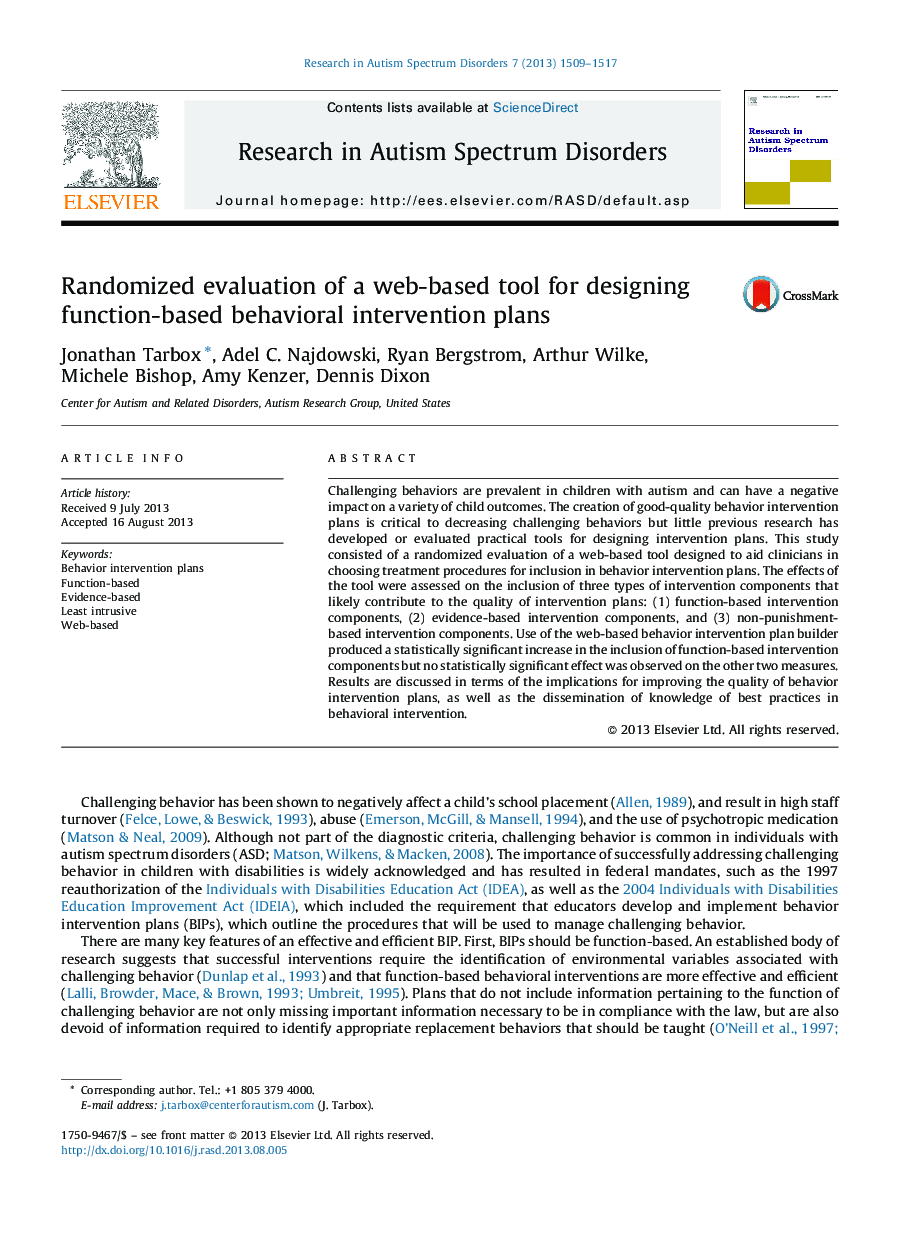| Article ID | Journal | Published Year | Pages | File Type |
|---|---|---|---|---|
| 370510 | Research in Autism Spectrum Disorders | 2013 | 9 Pages |
•Conducted randomized trial of a web-based tool for creating behavior intervention plans.•Examined use of evidence-based, function-based, and non-intrusive procedures.•Preliminary data suggest improvements in use of function-based procedures.
Challenging behaviors are prevalent in children with autism and can have a negative impact on a variety of child outcomes. The creation of good-quality behavior intervention plans is critical to decreasing challenging behaviors but little previous research has developed or evaluated practical tools for designing intervention plans. This study consisted of a randomized evaluation of a web-based tool designed to aid clinicians in choosing treatment procedures for inclusion in behavior intervention plans. The effects of the tool were assessed on the inclusion of three types of intervention components that likely contribute to the quality of intervention plans: (1) function-based intervention components, (2) evidence-based intervention components, and (3) non-punishment-based intervention components. Use of the web-based behavior intervention plan builder produced a statistically significant increase in the inclusion of function-based intervention components but no statistically significant effect was observed on the other two measures. Results are discussed in terms of the implications for improving the quality of behavior intervention plans, as well as the dissemination of knowledge of best practices in behavioral intervention.
